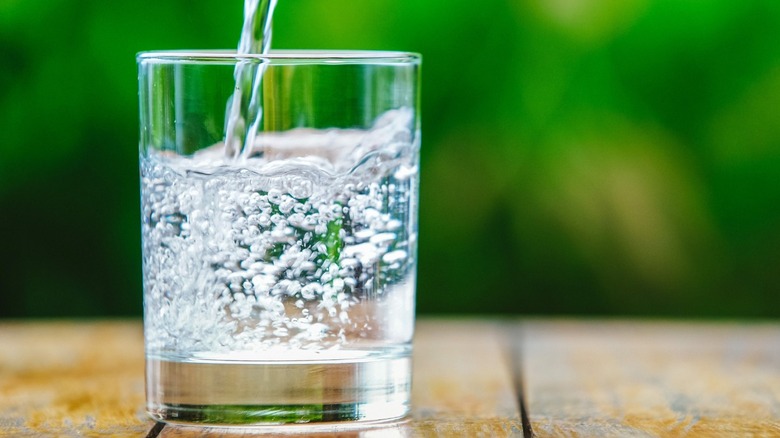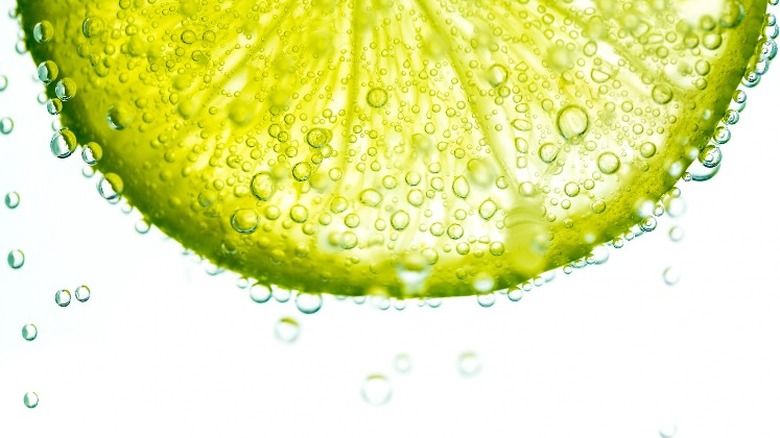Is Seltzer Water Bad For You?
You've sworn off sugary sodas and replaced them with seltzer water as a way to improve your health. Sure, that seltzer doesn't have the sugars of regular sodas, but does that mean it's still good for you?
First, what exactly is seltzer water? Seltzer water falls under the larger umbrella of carbonated water, which is water infused with carbon dioxide, giving the water its effervescence. The invention of carbonated water is attributed to the English chemist Joseph Priestly in 1767 (via American Chemical Society), and a town in Germany called Selters, which has naturally occurring springs, is believed to be where the word "seltzer" got its name (via Atlas Obscura).
According to Slate, water can become carbonated naturally from mineral springs or it can be carbonated artificially using carbon dioxide cartridges or tanks. You should know that seltzer water only contains two things — water and carbon dioxide. Other carbonated waters have a slightly different makeup. Club soda, for instance, contains added salts to make it taste as if it came from a natural spring. Sparkling mineral water is different from seltzer water in that it must include at least 250 ppm of dissolved minerals that originate from a protected underground water source. If water from these locations falls below that amount, it is defined as spring water (via Slate).
How much seltzer water is too much?
Because seltzer water has zero calories, zero grams of fat and is a good hydration alternative to regular water, health experts generally agree it is healthy to drink. People also report that seltzer water can help provide them relief for stomach pain, indigestion and irregular bowel movements. In addition, because it does not contain sugar, seltzer is an excellent choice for people who struggle with obesity or suffer from type 2 diabetes, and may also promote a sense of fullness in some people, which can help promote weight loss (via WebMD).
While there is wide support for seltzer among health experts, there are some side effects to keep in mind. People who experience "GERD," or gastroesophageal reflux disease, should refrain from drinking seltzer to avoid triggering symptoms. According to the New York Times, nutritionists also point out that carbonated water like seltzer is going to become somewhat acidic when the carbon dioxide mixes with your saliva. Seltzer water infused with citrus will raise the acidity even further. Same with adding a slice of lime or lemon. Too much acidity could ultimately be bad for your teeth, although, "it would take quite a lot of consumption throughout the day to have damaging effects similar to what we'd see with fruit juice or soda," Dr. Brittany Seymour, an associate professor at the Harvard School of Dental Medicine, tells the New York Times.
Bottom line: Seltzer water is good for you, so drink up! However, if it's your drink of choice on a daily basis, experts recommend pairing it with food and enjoying it through a straw to reduce its direct impact on your teeth.


